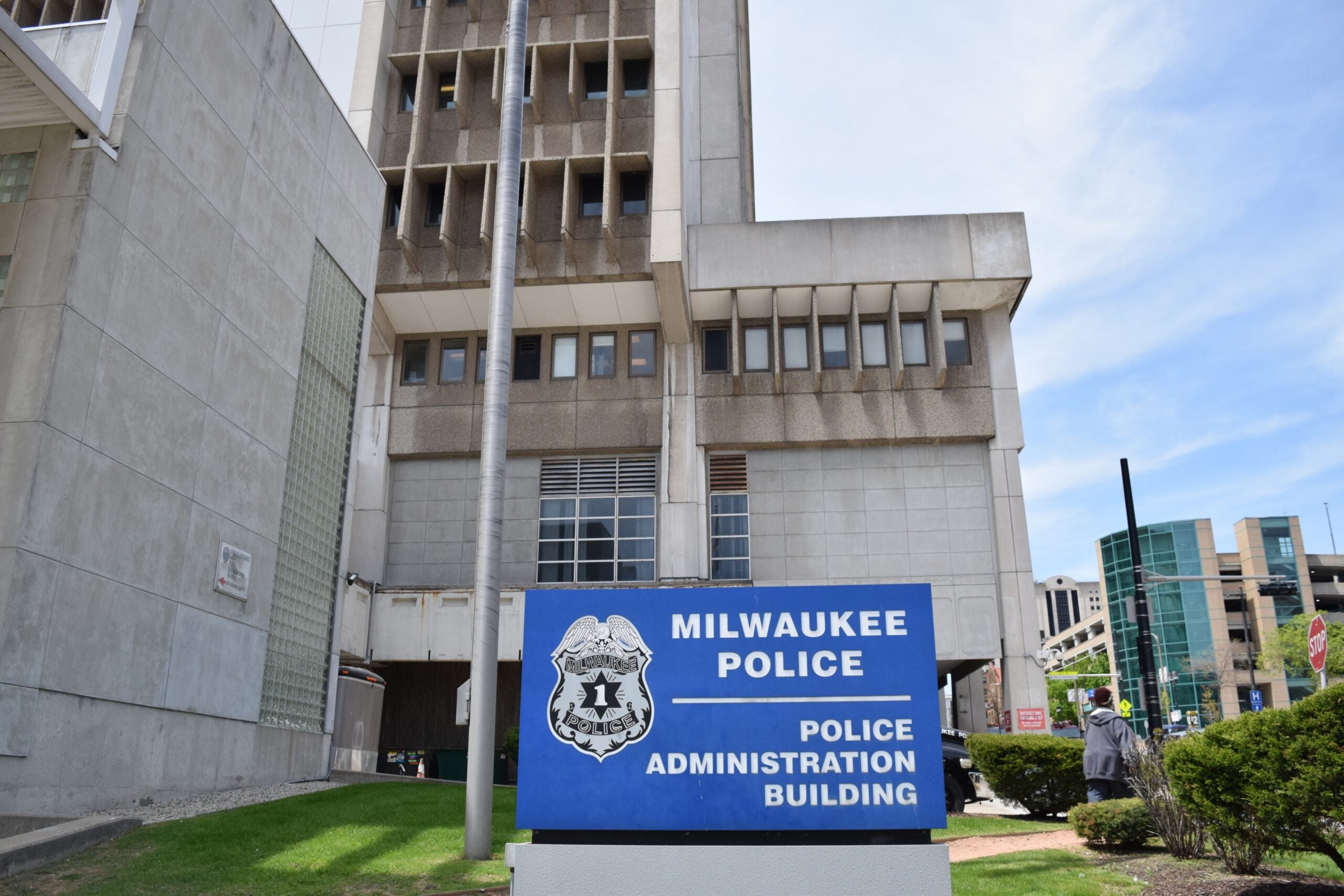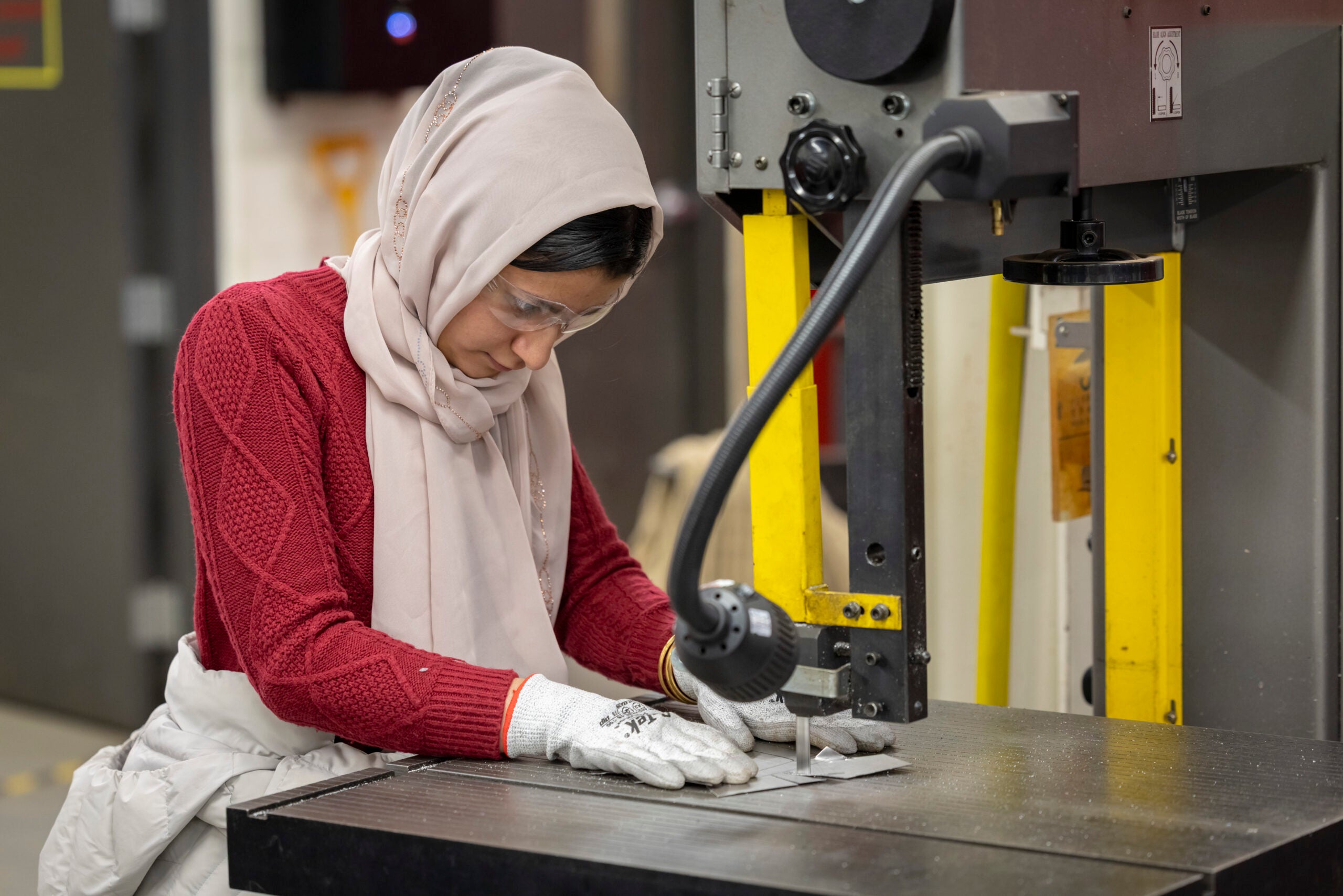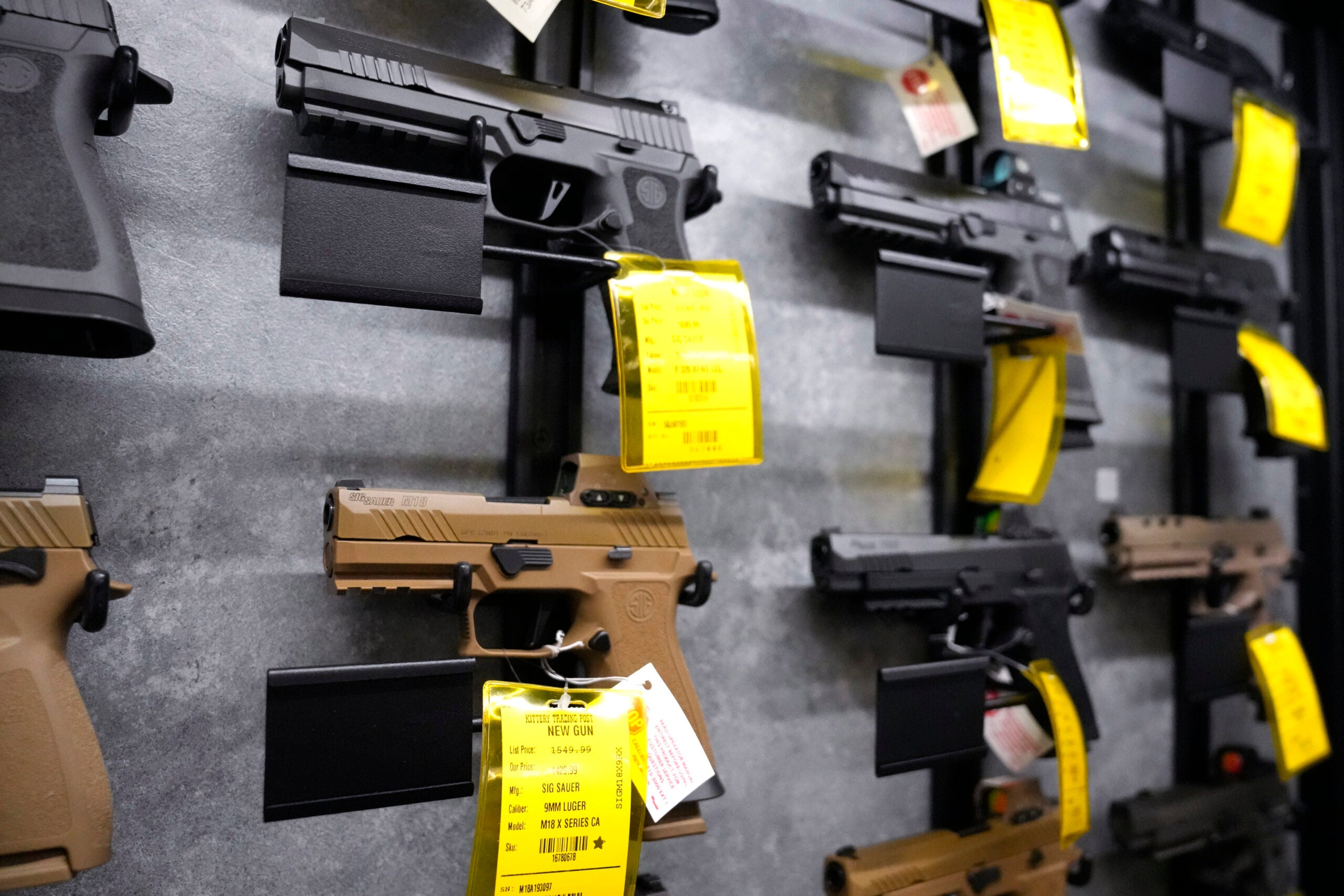The Milwaukee Police Department is considering a trade — 2.5 million mugshots for new facial recognition technology.
The department first floated the trade with facial recognition company Biometrica at an April meeting of the city’s Fire and Police Commission.
The trade would give MPD two free licenses to use the company’s software — one in its criminal investigations unit and the other at the Southeastern Wisconsin Threat Analysis Center, a “fusion center” run with the Department of Homeland Security.
News with a little more humanity
WPR’s “Wisconsin Today” newsletter keeps you connected to the state you love without feeling overwhelmed. No paywall. No agenda. No corporate filter.
Since its proposal, the trade has drawn strong opposition from local elected officials and activists.
On May 14, 11 out of Milwaukee’s 15 alders signed a letter to MPD Chief Jeffrey Norman opposing the adoption of the technology.
“While we understand the desire to enhance public safety and the promises people have made for this emerging technology, we believe these benefits are significantly outweighed by the risks they pose to privacy, civil liberties, and equitable policing,” the letter says.
“What is worse, given the rhetoric and actions of the current federal administration, the communities we represent have made clear to us that they believe it is particularly unwise and unsafe to implement this technology,” the letter continues.
Emilio De Torre is the executive director of the Milwaukee Turners, a historic social organization that monitors Fire and Police Commission meetings. He said providing Biometrica with mugshots indirectly helps the company’s other potential clients identify Milwaukeeans.
“This is just going to be another tool for the federal government to exploit, without knowledge of local police departments, without any civil oversight of how this is utilized and, frankly, beyond the reach of repercussions of a civil society” he said.
In an email to WPR, a Biometrica executive wrote that “we do not do any work in or with immigration enforcement. Our data does not include immigration records. We do not work with ICE.”
A 2021 investigation found several Wisconsin police departments used facial recognition software Clearview AI. In 2020, the Madison City Council banned the use of facial recognition technology, with some exceptions for police.
MPD has already used neighboring police departments’ facial recognition software for certain investigations, a department spokesperson told WPR.
Corporate ownership removes data from public oversight, scholar says
Alan Rubel, who studies the ethics of data and surveillance and the University of Wisconsin-Madison, highlighted the fact that MPD wants a trade, rather than purchasing the tech.
“That’s going to be very useful for that company,” he said.
“We’ve collected this data as part of a public investment, in mugshots and the criminal justice system, but now all that effort is going to go to training an AI system,” he added.
Though mugshots are public data, he said, trading them to a private company weakens legal controls on their use.
“Once information is held by someone outside of government control, it can be used for all kinds of things, and there’s not really any legal restriction on doing so,” he said.
In general, he said, data owned by a private company can be sold to anyone from news organizations to casino security services and political parties.
In Milwaukee, police department promises guardrails for tech’s use
Norman, the police chief, responded on May 16 to the alders’ letter. If his department acquired the technology, he wrote, it would “do so with a policy ensuring its use does not violate civil liberties or rights of individuals.”
In the letter, and in April testimony to the Fire and Police Commission, MPD officials stressed that facial recognition technology would never be used to establish probable cause for arrests or warrants.
“We have not used it for that in the cases that we’ve presented with the help of outside agencies, and we’re not going to do it in the future,” Inspector Paul Lough said at the commission meeting.
In those cases of borrowing other departments’ tech, Lough said, MPD only used it to generate investigative leads, speeding up investigations.
He gave an example: A sexual assault victim told detectives the perpetrator had entered a gas station before the crime. When someone on the gas station’s security camera footage matched the suspect’s description, detectives ran the software and found he was a parolee. They double-checked his identity with the man’s parole officer before arresting him.
Alder Alex Brower, one of the letter’s co-signers, said he appreciates the proposed guardrail, but he said “that needs to be independently verified and monitored.”
In their letter, alders asked MPD to bring a “carefully-considered Standard Operating Procedure” to the Common Council if they proceed with their plans.
Brower said he’s support Common Council legislation to limit facial recognition technology in Milwaukee.
As of June 6, MPD confirmed to WPR that it didn’t currently have an agreement in place with Biometrica.
The facial recognition proposal will be discussed at the city’s Equal Rights Commission on June 18.
Editor’s note: this story has been updated to include comment from the company.
Wisconsin Public Radio, © Copyright 2026, Board of Regents of the University of Wisconsin System and Wisconsin Educational Communications Board.







